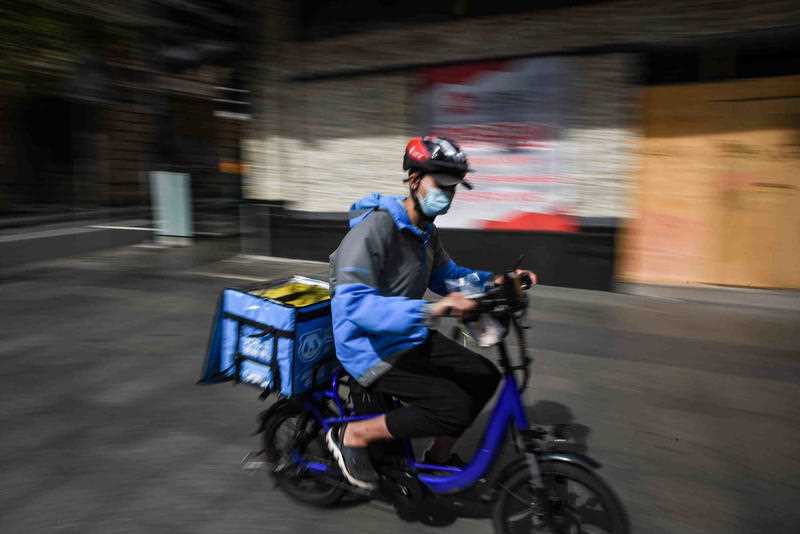Almost half of all Australian gig workers make less than the minimum wage even though most work long hours and during peak times, according to a world-first study of delivery and rideshare drivers.
Experts said the Tough Gig study, which surveyed more than 1000 Australian gig workers, showed some were “effectively experiencing wage theft” and the industry had become “unsustainable” as a source of employment.
The research came a week after Uber launched an advertising campaign against proposed legal changes that would let the Fair Work Commission set minimum pay and conditions for gig workers.
The survey – conducted by The McKell Institute between December and February – found 81 per cent of respondents relied on income from their delivery or rideshare jobs, 74 per cent worked long hours, and 42 per cent worked for more than 40 hours a week.
One person told researchers they worked “seven days a week and often above 70 to 80 hours a week and I barely make enough money to live”.
Despite long days, almost half (45 per cent) of all gig workers surveyed earned less than minimum wage. Food delivery workers were worse off, with 57 per cent reporting income below the minimum.
The survey participants listed low pay, a lack of sick leave, and income uncertainty among their top concerns.
McKell Institute chief executive Michael Buckland said the survey, which was the largest of its kind, showed gig workers were under pressure to work long hours for inadequate compensation.
“This survey shows that tens of thousands of people in Australia are effectively experiencing wage theft and have no rights to sick leave, superannuation, or workers’ compensation,” he said.
Transport Workers Union national secretary Michael Kaine said the research showed the gig economy was not about flexible work, as some firms argued, as low rates of pay were forcing drivers to work for longer.
“… To pay the bills, workers have little choice but to work long hours and during peak times, while experiencing deadly pressure to rush or take risks just to make enough money and avoid their account being deactivated,” he said.
“These findings reveal that the future of gig work is unsustainable for all involved unless enforceable standards for fair pay, decent conditions and job security are put in place.”
Legal reforms for gig workers are expected to be floated later this year after Federal Employment Minister Tony Burke committed to regulating the industry and setting minimum conditions for “employee-like” work.
Gig workers are currently treated as independent contractors in Australia, meaning they are not covered by National Employment Standards and do not receive sick leave or superannuation.
But rideshare giant Uber has launched an advertising campaign against some of the proposed reforms, arguing changes should not affect the flexibility of gig work.
“Workers have consistently told us they want any future policy to protect flexibility, while also providing clear, fit-for-purpose standards and greater benefits to improve independent work,” Uber Eats Australia managing director Bec Nyst said.
In 2022, Uber and DoorDash signed agreements with the Transport Workers Union to support the creation of an independent body to set safety and pay standards for gig workers.
By Jennifer Dudley-Nicholson in Brisbane



